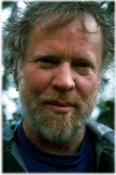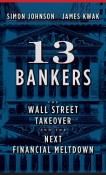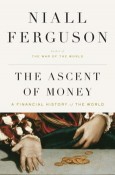Q&A: RICK STEINER, Marine conservation specialist Professor, University of Alaska
Written on September 7th, 2010 |
Aired 09/05/10
RICK STEINER served as a marine conservation professor with the University of Alaska from 1980-2010, stationed in the Arctic, Prince William Sound, and Anchorage. He was responsible for the University's conservation and sustainability extension effort, and was producer/host of the Alaska Resource Issues Forum, a public television program on controversial natural resource issues. He advised the emergency response to the Exxon Valdez Oil Spill in 1989 and helped found the Regional Citizens Advisory Councils and the Prince William Sound Science Center. He advises the UN, governments, NGOs, and industry on oil spill prevention, response, assessment, and restoration.
Steiner learned about oil spills the hard way -- in Valdez Harbor. He learned about academic politics the same way, losing federal grant funding for outspoken criticism of the oil industry.
Q&A: ANDREW BACEVICH, professor of history & international relations – Author
Written on August 10th, 2010 |
Aired 08/08/10
ANDREW BACEVICH, professor of history and international relations at Boston University, served twenty-three years in the U.S. Army, retiring with the rank of colonel. He also lost his son in Iraq last year. A graduate of the U. S. Military Academy, he received his Ph. D. in American Diplomatic History from Princeton University. His writing has appeared in Foreign Affairs, the Atlantic Monthly, the Nation, the New York Times, the Los Angeles Times, and the Wall Street Journal. He is the author of several books, including THE NEW AMERICAN MILITARISM; THE LIMITS OF POWER: The End of American Exceptionalism; and his newest, WASHINGTON RULES: America's Path to Permanent War.
Q&A: SIMON JOHNSON-Author/Economist
Written on April 22nd, 2010 |
Aired 04/18/10
SIMON JOHNSON, former chief economist at the International Monetary Fund, is currently Professor of Entrepreneurship at MIT's Sloan School of Management and a senior fellow at the Peterson Institute for International Economics in Washington. He is the co-author of STARTING OVER IN EASTERN EUROPE and co-founder of the blog site THE BASELINE SCENARIO with James Kwak, with whom he also co-authored the new book, 13 BANKERS: The Wall Street Takeover and the Next Financial Meltdown.
Q&A: NIALL FERGUSON, Columnist and Author
Written on January 29th, 2009 |
Aired 01/27/09
NIALL FERGUSON is Lawrence A. Tisch Professor of History at Harvard University, a Senior Research Fellow at Jesus College, Oxford, a Senior Fellow of the Hoover Institution at Stanford, an op ed columnist for the LA Times, and the other of several books, the newest is THE ASCENT OF MONEY: A Financial History of the World.
In THE ASCENT OF MONEY, NIALL FERGUSON says that finance is the foundation of human progress, and that financial history is the essential back-story behind all history.
He explains how banks provided the material basis for the the Italian Renaissance, while the bond market was the decisive factor in conflicts from the Seven Years' War to the American Civil War. Ferguson points out the origins of the French Revolution in a stock market bubble, and shows how a financial revolution is propelling the world's most populous country from poverty to power in a single generation.
The single most important lesson of financial history is that sooner or later every bubble bursts - sooner or later the bearish sellers outnumber the bullish buyers - sooner or later greed flips into fear.
We'll discuss how history can be helpful at a moment like this. And, what can it tell us about our current crisis and the way out?
